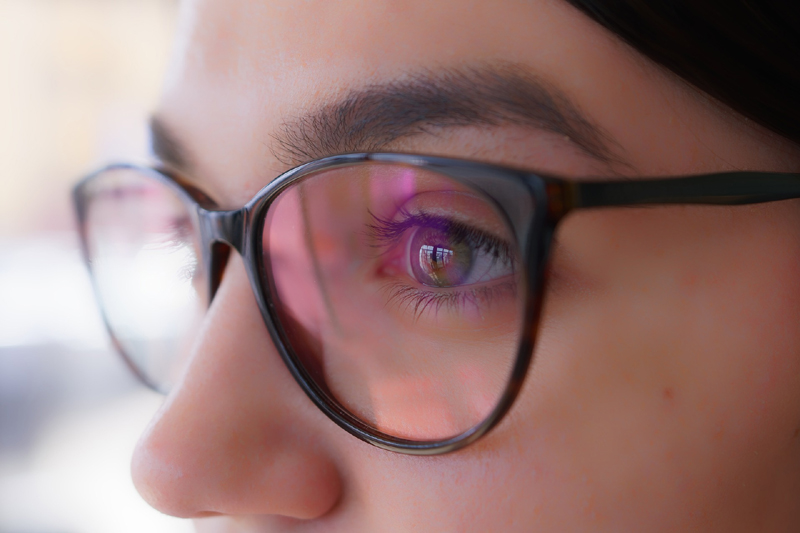Eye health is an important part of overall well-being, as our eyesight plays a major role in how we experience the world. Unfortunately, many people don’t take proper care of their eyes, which can lead to vision problems down the line. Fortunately, there are some simple steps you can take to keep your eyes healthy and maintain good vision. In this article, we will discuss eight useful tips for keeping your eyes healthy and avoiding common eye conditions. By following these tips regularly and making them part of your routine lifestyle habits, you can help ensure that your vision stays sharp and clear for years to come!

1. Get regular eye exams.
Seeing your doctor for an annual eye exam is the best way to make sure that your eyes remain healthy and properly functioning. An optometrist can check for common vision changes, detect any signs of disease, and prescribe glasses or contact lenses if needed. This will help you catch any issues early before they become worse. Also, consider getting a comprehensive dilated eye exam if you are over the age of 40. This way you’ll be able to catch any age-related eye conditions before they cause long-term damage. For example, glaucoma, a condition caused by high pressure inside the eyes, is more common in older adults.
2. Wear sunglasses whenever you are outside.
Ultraviolet (UV) rays from the sun can be damaging to your eyes, increasing your risk of cataracts and other eye diseases. To protect your eyes, wear sunglasses when outdoors that block 99-100% of both UVA and UVB radiation. Look for glasses with lenses made from polycarbonate or other materials specifically designed to block UV radiation. Wearing a wide-brimmed hat can also provide additional protection against UV rays as well as reduce glare. For instance, baseball caps with wide brims are great for shading your eyes from the sun.
3. Wear blue light-blocking glasses.
With the increasing use of digital devices, it’s important to protect your eyes from the blue light emitted by them. Blue light can cause eye strain and even contribute to age-related macular degeneration over time. To reduce your exposure, wear glasses with lenses for blue light blocking when using digital devices. This way, you can still enjoy using your phone, laptop, or tablet without serious risks. For example, some glasses have lenses that are specifically designed to block blue light, while others may come with yellow-tinted lenses. This will help reduce your risk of eye strain and other long-term vision problems.
4. Eat a healthy diet.
Eating a balanced and nutritious diet is essential for eye health as well. Eating plenty of leafy green vegetables like kale, spinach, and collard greens can help protect against macular degeneration and cataracts. Fruits such as oranges and strawberries are also rich in antioxidants that can help reduce the risk of certain eye diseases. Additionally, fatty fish such as salmon, tuna, and sardines contain omega-3 fatty acids which have been shown to protect vision by reducing inflammation in the eyes. So make sure to include these foods in your daily diet!
5. Quit smoking.
Smoking increases your risk for many serious health conditions, including age-related macular degeneration and cataracts. Research has shown that smokers are two to three times more likely to develop age-related macular degeneration than non-smokers, so it is important to quit if you want to protect your vision. Additionally, smoking can also worsen conditions such as glaucoma, diabetic retinopathy, and dry eye syndrome. For example, smoking can weaken the tiny blood vessels in the retina, leading to vision loss.
6. Take frequent breaks from looking at screens.
Staring at a screen for prolonged periods of time can cause eye strain, dry eyes, and headaches. To avoid this, try to take frequent breaks when using digital devices such as phones and computers by looking away from the screen every 20 minutes. Additionally, you can also adjust your device settings so that the brightness is lower to reduce the amount of blue light exposure. And lastly, consider investing in an anti-glare filter or blue light glasses if you are using digital devices often and for extended periods of time. Make sure to give your eyes the rest they deserve!
Taking care of our eyes is essential for maintaining healthy vision. By following the tips we’ve outlined above, such as wearing sunglasses and blue light-blocking glasses when outdoors or using digital devices, eating a balanced diet that includes fatty fish and leafy greens, quitting smoking if you are a smoker, and taking regular breaks from screens to reduce eye strain, you can help protect your vision now and in the future. Make sure to visit an optometrist regularly to catch any age-related eye conditions before they cause long-term damage. With these simple steps, you can make sure your eyes stay healthy!
Like this post? Subscribe to this blog by clicking HERE.
Let’s stay connected: